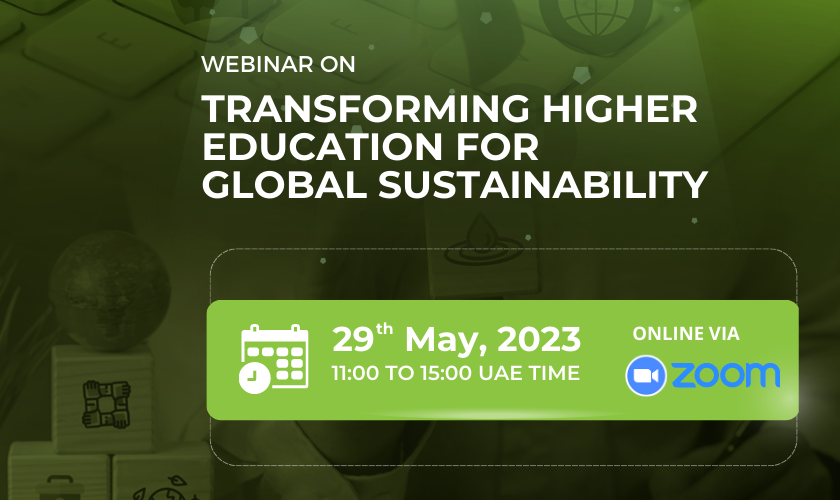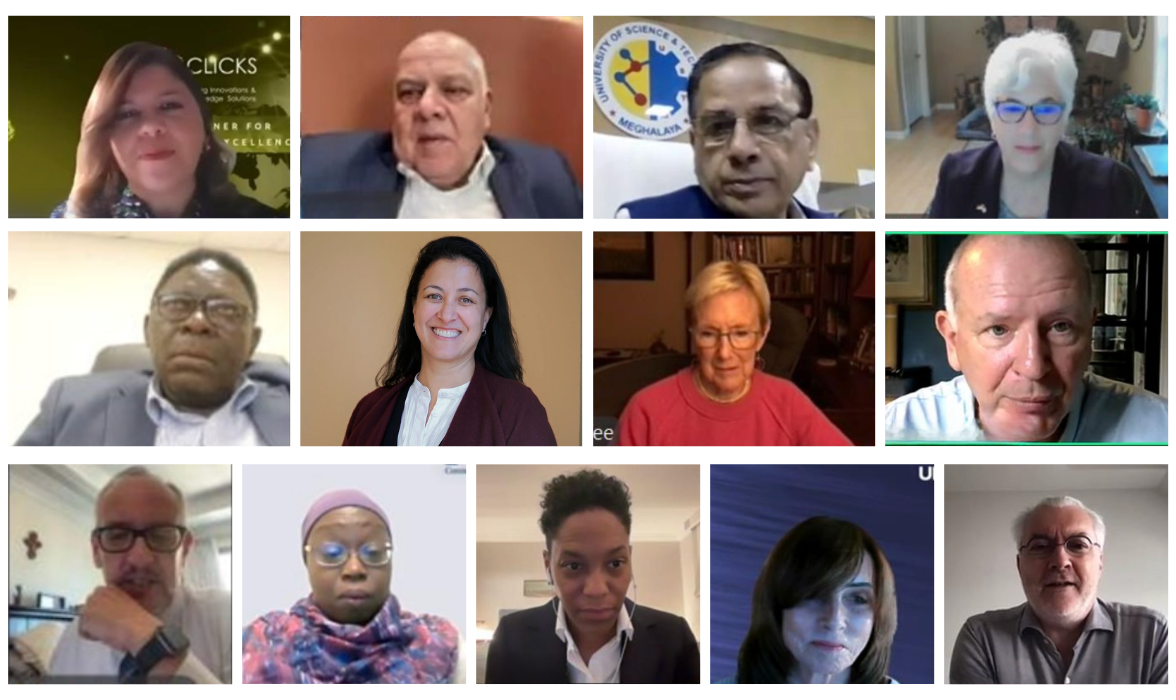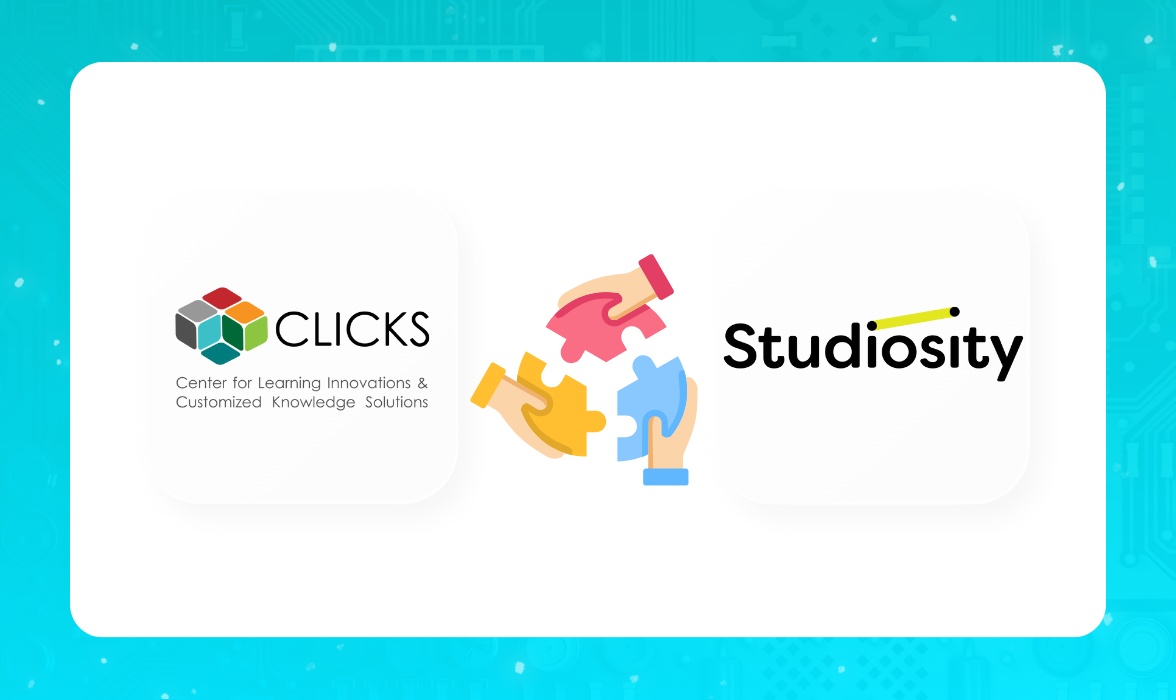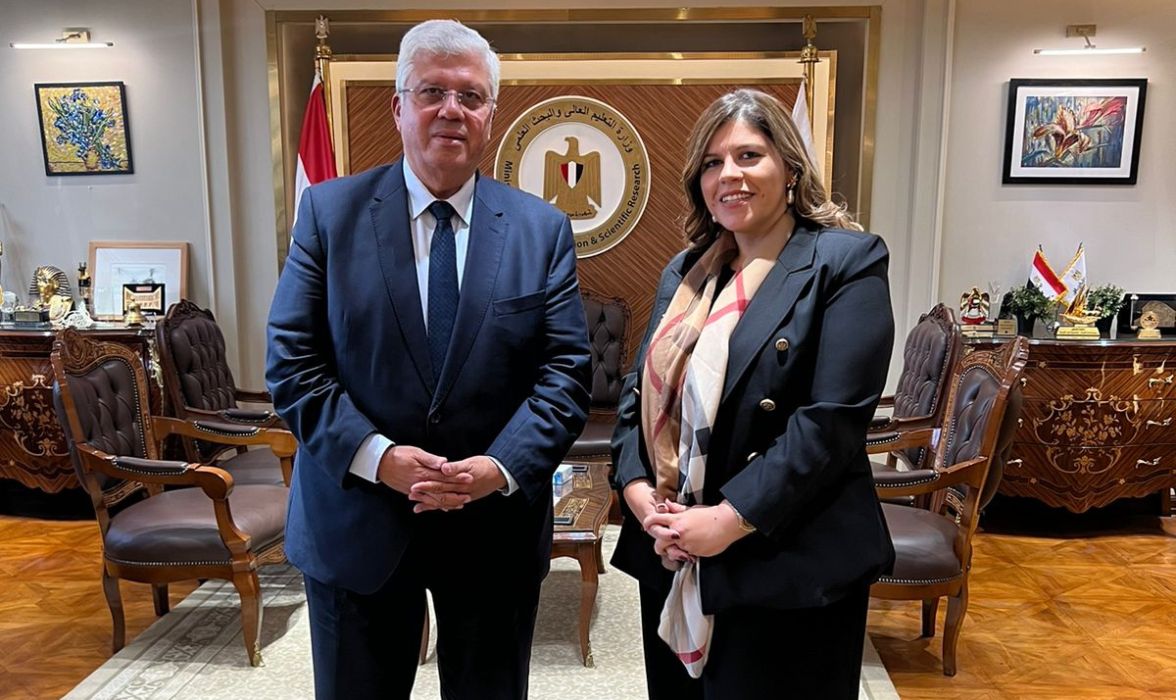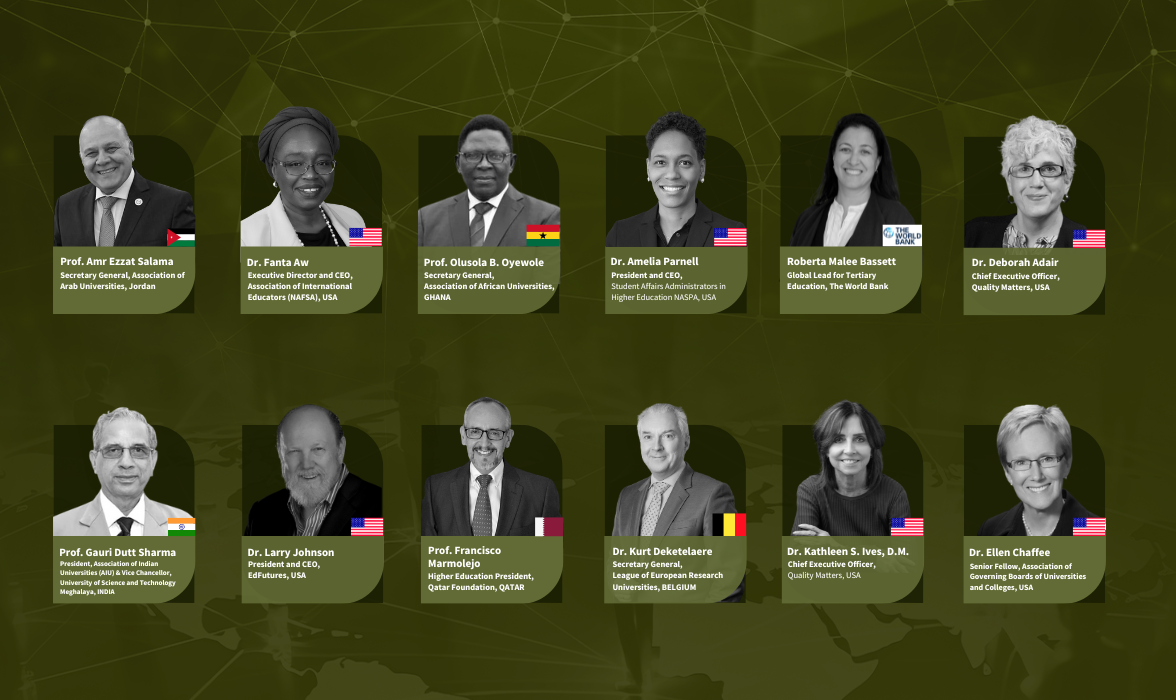Date: May 29th, 2023
Time: 11:00 to 15:00 UAE Time
Early Bird Fee: 125 USD (for registration fully completed prior April 30, 2023)
Webinar Fee : 150 USD (for registration after April 30, 2023)
Online Via Zoom
Overview
Universities have a critical role in shaping and responding to the needs of society and to contribute to the 17 Sustainable Development Goals. They can be agents for powerful change towards achieving these ambitious goals, through research, curricula, teaching and learning, working practices and community service but also through empowering and energizing students and the wider community towards these goals. Education for Sustainable Development (ESD) empowers students to take informed decisions and responsible actions for environmental integrity, economic viability and a just society, for present and future generations, while respecting cultural diversity.
Your graduates, how they live, learn and work throughout their lifetimes, will have a persistent impact on the environmental and social challenges the world is facing. The competencies, the skills, attributes and values – they develop through their studies can help them contribute to a more sustainable future, transforming their thinking so that they have a positive impact throughout their lives.
ESD is holistic and transformational education approach which addresses learning content and outcomes, pedagogy and the learning environment. It achieves its purpose by transforming society. Designing teaching and learning in an interactive, learner-centred way that enables exploratory, action oriented and transformative learning that contributes to learning environments that are inclusive and inspire learners to act for sustainability is what universities across the globe should be considering. Teaching staff should adopt approaches that stimulate student learning and promote core competencies such as critical and systemic thinking, collaborative decision-making, and taking responsibility for present and future generations.
However, for ESDGs to be impactful, it must follow an integrated, holistic and inclusive approach that demonstrate the engagement of different stakeholders and members of the educational community. It should become an integral part of universities’ strategy infused in its culture.
This highly interactive webinar will introduce participants to the 17 United Nations Sustainable Development Goals (SDGs); what is meant by Education for Sustainable Development Goals (ESDGs) and how can it be strategically and operationally (within the curriculum) implemented. What sort of enablers must be in place and how can universities make sustainability a strategic priority where different stakeholders are actively involved. A number of case studies and good practices will be shared throughout the session by the facilitators.
It will then focus on equipping academic administrators and faculty members with the necessary knowledge, skills and competencies to integrate SDGSs in their curricula, pedagogy, teaching and learning activities and student assessment and look at how to empower students to become future agents of change. The session will conclude by looking into global developments and initiatives related to sustainability in HE and how can universities benefit and engage with them.
Webinar Objectives
By the end of the webinar participants will be able to:
- Understand sustainability, the 17 SDGS , Education for Sustainable Development Goals (ESDGs) and what role universities play in addressing them.
- Implement ESD both strategically and operationally within their institutions based on best practices shared during the session.
- Gain insights into key competencies required for suitability and how do we transform our current practices.
- Effectively integrate sustainability into the curriculum, teaching and learning approaches and student assessment.
- Comprehend the disciplinary connections to the foundation sustainability concepts.
- Apply sustainability pedagogy and understand its connection to Service Learning (SL) and Experiential Learning (EL).
- Gain an understanding of recent global developments and initiatives supporting sustainability in higher education.
Webinar Structure
Session 1: Advancing Sustainability in Universities: The Need for a Strategic Approach
Dr. Narimane Hadj-Hamou, Founder & CEO, CLICKS, UAE
This session will introduce participants to the United Nations Sustainable Development Gaols (SDGs) and targets and what is meant by Education for Sustainable Development Goals (ESDGs). It will look at how HEls can support and contribute to global efforts for a more sustainable future and how it can expand and deepen the implementation of ESDGs by embedding sustainability as a strategic imperative. A number of topics will be addressed including: the role of universities in ESDGs, main approaches to delivering ESDGs, engaging stakeholders, enablers and steps for implementing and mainstreaming ESDGs at universities, barriers and challenges, adopting a transformative approach among others.
Session 2: Education for Sustainable Development: What, Why and How?
Dr. Catherine Hack, Principal Adviser, Learning and Teaching, AdvanceHE, UK
ESD empowers learners to take informed decisions and responsible actions for environmental integrity, economic viability and a just society, for present and future generations, while respecting cultural diversity.’
AdvanceHE have supported the UK higher education sector in producing guidelines for Education for Sustainable Development (ESD), informed by the UNESCO definition for ESD.
In this interactive session, participants will have the opportunity discuss how ESD is defined and interpreted and how to explore the value and mechanisms for developing an institutional strategy for ESD, based on this guidance from a practical perspective.
Session 3: Infusing SDGs in your Teaching and Learning
Dr. Patrick Paul Walsh, Director, the SDG Academy & Vice President of Education, The Sustainable Development Solutions Network, Ireland
This session will discuss how ESD will be applied operationally across the curricula. Specifically, it will address how can HEls and faculty members translate SDGs into teaching and learning and the sort of difficulties that maybe faced when integrating SDGs in the curriculum. Participants will converse on the range of faculty and students’ skills, values and competencies required to purposefully integrate sustainability, establish relevance as to address critical issues (i.e. climate change, biodiversity, disaster risk reduction, and sustainable consumption and equity, etc.) and create impact. They will also look into useful pedagogical approaches that can be adopted to teach sustainability and promote core competencies and how to empower students to transform themselves and the society.
Session 4: Global Developments in Sustainability in Higher Education
Dr. Nari mane Hadj-Hamou, Founder & CEO, CLICKS, UAE
This last session aims to shed the light on recent global developments and initiatives that have emerged in the last few years around sustainability in higher education, this includes the establishment of impact rankings, associations and coalitions, declarations, benchmarking tools, etc. and how can HEls capitalize, engage and contribute to these global initiatives.
Who is this Webinar for?
• Senior Management Teams from HE ls
• Director and staff leading sustainability
• Directors and staff working in strategic planning offices
• Faculty members and staff involved in curriculum design and course delivery
• Deans, directors and staff working with students (i.e. students affairs/ students clubs)
Workshop Facilitators
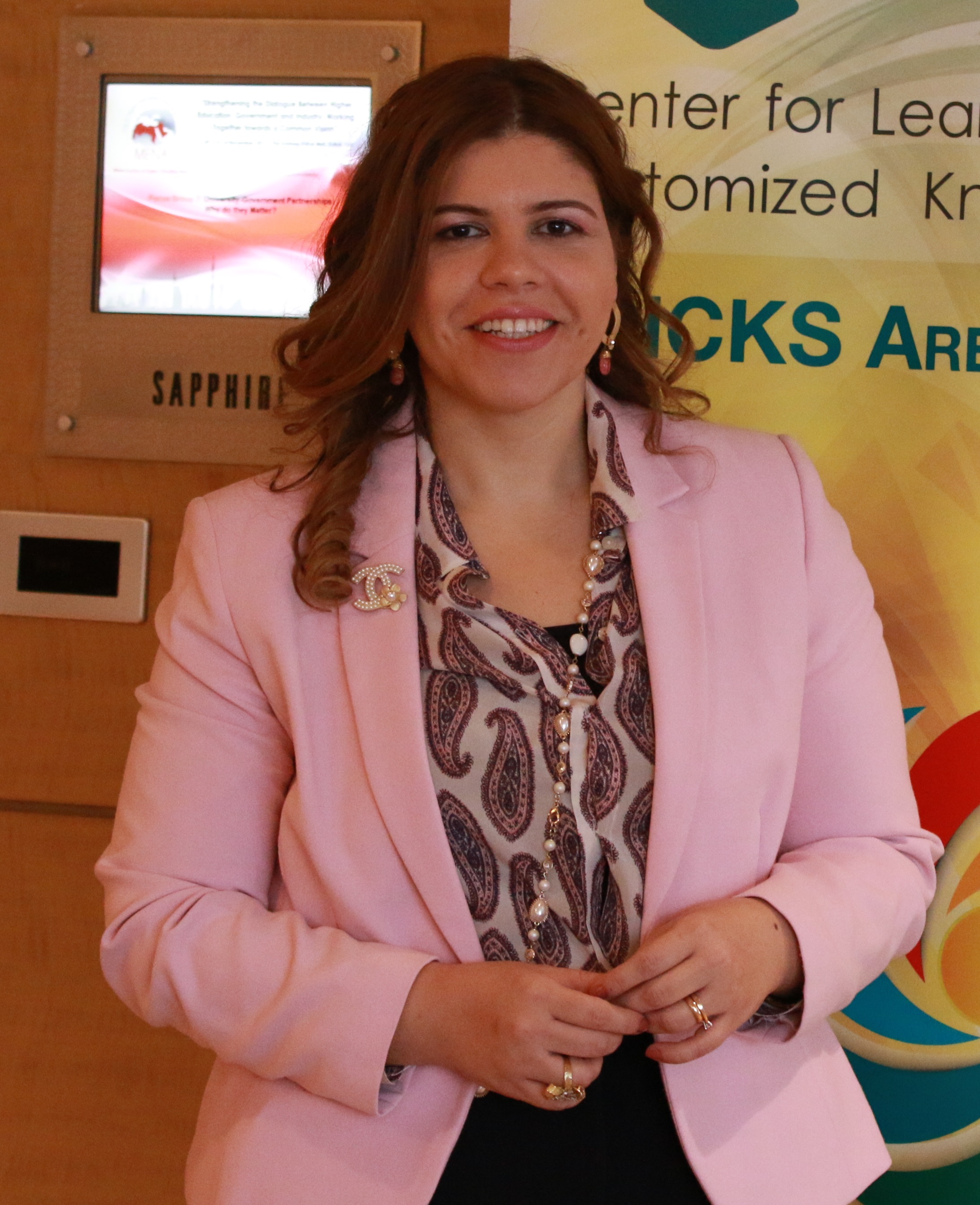
Dr. Narimane Hadj Hamou
Founder & CEO, CLICKS, UAE

Dr. Catherine Hack
Principal Adviser, Learning and Teaching,
AdvanceHE, UK

Dr. Patrick Paul Walsh
Director, the SDG Academy & Vice
President of Education, The Sustainable Development
Solutions Network, Ireland

